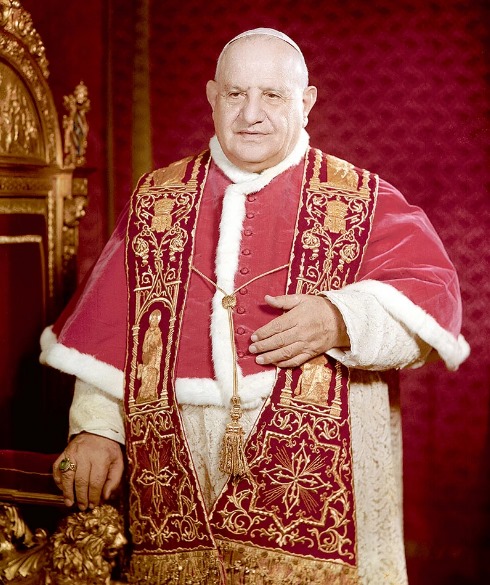
Today, October 11, is the memorial of Pope Saint John XXIII.
The future pope was born Angelo Roncalli in 1881 to an Italian peasant family. He studied at Bergamo and the Pontifical Roman Seminary. He was ordained in 1904 and became secretary to the bishop of Bergamo, Italy from 1904 to 1914, during which he wrote the basis for his five-volume biography of Saint Charles Borromeo.
He served in World War I in the medical corps, and as a chaplain. Back in Rome, he reorganized the Society for the Propagation of the Faith. As papal nuncio to France in 1944, he mediated between the conservative and socially radical clergy. He was created cardinal in 1953, and patriarch of Venice. He was elected 261st pope on October 28, 1958.
Pope John XXIII promoted social reforms for workers, poor people, orphans, and the outcast. He advanced cooperation with other faiths and traditions including Protestant, Greek Orthodox, Church of England, and even Shinto.
In April 1959 he forbade Catholics to vote for parties supporting Communism. His encyclical, Mater et Magistra of 1961 advocated social reform, assistance to underdeveloped countries, a living wage for all workers, and support for socialist measures that promised real benefit to society.
He nearly doubled the number of cardinals, making the college the largest in history. On January 25, 1959, the Pope announced his intent to call a council to consider ways to renew the Church in the modern world, promote diversity within the unity of the Church, and consider reforms promoted by ecumenical and liturgical movements. This council became known as Vatican II, in 1962, considered the high point of his reign.
Pope John XXIII died of peritonitis at age 81 in 1963. He was beatified in 2000 by Pope St. John Paul II. He was canonized in 2014 by Pope Francis.